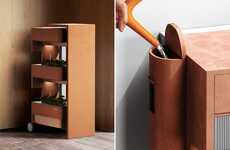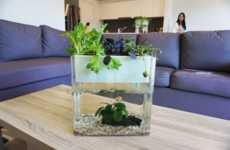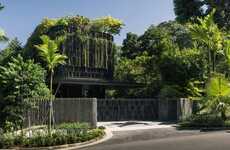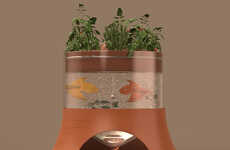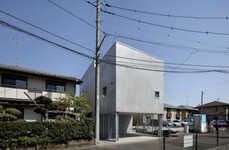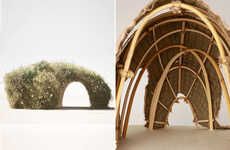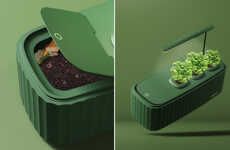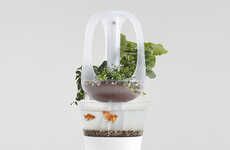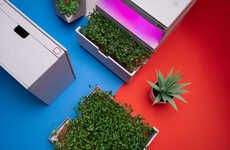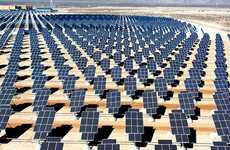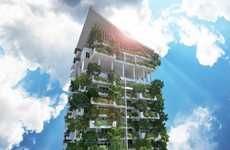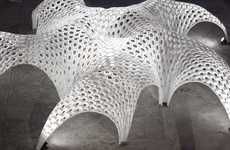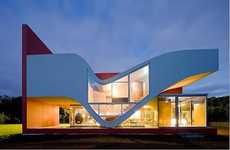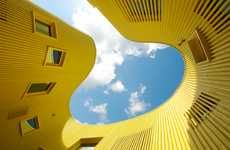
The Eco-Aquaponic House Prototype by Michael Jantzen is Sleek
References: michaeljantzen & cubeme
This eco-friendly and energy-efficient structural prototype by Michael Jantzen promotes harmonious cycles of growth. The design, titled the Eco-Aquaponic House, would be home to different types of plants and a tankful of fish. The fishes' waste would be recycled to fertilize the plants. The plants will grow to provide oxygen and filter the water. In this way, the house would maintain a balanced cycle of dependent organisms.
The round house would have pivotal screen doors that conveniently permit or block out the sun or rain. Each screen would also absorb heat and insulate cold weather to protect the wildlife. At the center of the steel cylindrical structure would be the fish tank; visitors will be able to walk around it for a peaceful experience. Ideally, this zen garden would be powered by solar cells. Publicly exhibiting a structure like this one would promote harmonious growth of organisms and confirm the potentials of eco-friendly and innovative green houses.
The round house would have pivotal screen doors that conveniently permit or block out the sun or rain. Each screen would also absorb heat and insulate cold weather to protect the wildlife. At the center of the steel cylindrical structure would be the fish tank; visitors will be able to walk around it for a peaceful experience. Ideally, this zen garden would be powered by solar cells. Publicly exhibiting a structure like this one would promote harmonious growth of organisms and confirm the potentials of eco-friendly and innovative green houses.
Trend Themes
1. Eco-friendly Architecture - Disruptive innovation opportunity: Designing eco-friendly structures that promote harmonious cycles of growth.
2. Sustainable Farming - Disruptive innovation opportunity: Developing aquaponic systems that recycle waste from fish to fertilize plants and create a balanced cycle of dependent organisms.
3. Energy Efficiency - Disruptive innovation opportunity: Incorporating solar cells to power innovative green houses and promote environmentally friendly living.
Industry Implications
1. Architecture and Construction - Disruptive innovation opportunity: Collaborating with architects and engineers to create eco-friendly structures that embrace sustainable farming practices.
2. Farming and Agriculture - Disruptive innovation opportunity: Introducing and implementing aquaponic systems in farming practices to maximize resource efficiency and minimize waste.
3. Renewable Energy - Disruptive innovation opportunity: Advancing solar cell technology to power energy-efficient green houses and encourage widespread adoption of renewable energy sources.
4.5
Score
Popularity
Activity
Freshness


